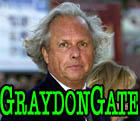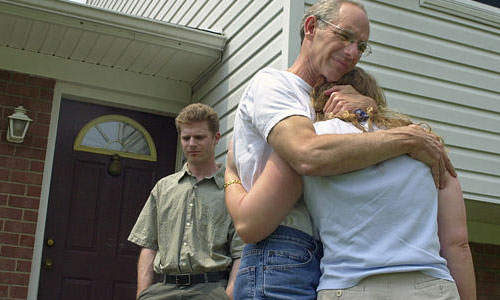 Mike and Fiona: ‘Happy Together’ |
By far, the single most frequent Google search bringing visitors to VanRamblings concerns longtime Urban Rush, and recently deposed CITY-TV Breakfast Television, hosts Fiona Forbes and Michael Eckford.
In a Vancouver Province e-entertainment news story published today, columnist Dana Gee reports that “Fiona Forbes and Michael Eckford have agreed to terms with Shaw TV and will return in October to host Urban Rush, a show they last helmed almost two years ago.”
“It’s great. I won’t have to get up in the middle of the night,” says Forbes, referring to the 19 months the pair spent on Citytv’s BreakfastTelevision. “When we met with our old bosses (at Shaw) and they made us an offer, Mike and I left the meeting and looked at each other and immediately high-fived. We really are excited about this.”
Forbes and Eckford will replace current UR hosts Erin Cebula and Russell Porter, whose contract expires July 16th.
The new Urban Rush will remain a one-hour talk show, and will be broadcast from the almost completed Shaw Tower in Coal Harbour, affording viewers a background vista (and here) of Vancouver’s magnificent harbourfront.


